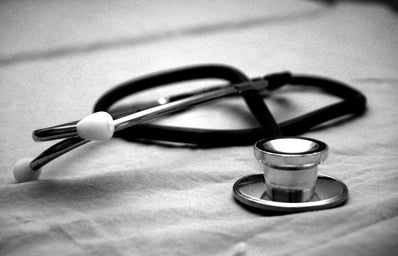This article is written by a student writer from the Her Campus at UWindsor chapter.
Are you interested in pursuing nursing, already in nursing and curious about some of the courses, or just interested in learning some of the courses we have in general? I’m going to help break down my top five favourite nursing courses I’ve taken so far, and for reference, I am in my fourth semester of nursing school!
- Maternal & Newborn Care
- As someone who personally wants to have children somewhere down the line (in the far future), this course has taught me SO much! From what the pre-pregnancy stage is like, to what it’s like to be pregnant, tests and complications of pregnancy, the healing process, how to do postpartum assessments, newborn assessments, newborn/postpartum complications, what newborn needs are and what certain signs and symptoms may present — it is literally a go-to guide with real life experiences that you will learn from, educate others on, and one day (perhaps) apply to your own lives as well. This course is transparent about the realities of pregnancy and postpartum (unlike our High School health classes and popular movies). There are definitely so many complications and the postpartum recovery period is intense and filled with risks (just like the whole process). Sometimes my friends and I even joke about how traumatized we are now, but fascinated by what the human body can do. I can definitely say that this course has taught me transferable skills I will be applying into the real world… and babies are just so cute!
- Experiential Learning Labs (ELLs)
- You pretty much have ELLs every semester of nursing school, and these labs are the fun part of our week—we get to perform, learn, and practice our hands-on skills. Our labs feature simulation experiences with automated mannequins that breathe, have pulses, and blood pressures and we are given two hours to perform based on a given scenario. Our weekly labs feature a setting just like hospitals or healthcare settings, with beds, mannequins, and pretty much everything else you can imagine. To date, my favourite skills learned have been injections, catheters, and beginning IV skills.
- Mental/Psychiatric Health Nursing
- This course is very intriguing in that it digs deep into emotions and its extremes that can lead to dysfunctional behaviours. It is all the more interesting because it goes beyond just direct nursing care and dives into a psychological level and is relatable to certain extents as learners. The way this course is delivered this semester also allows us to be evaluated based on a presentation at the end, and I think this is a great approach in showcasing everything we’ve learned. You learn how to become aware, assess, communicate with, and care for individuals struggling with mental illness and learn how to break down and understand what some of the different mental illnesses are and their indications. This course also breaks down mental health stigmas, which is a plus.
- Holistic Health Assessment (I & II)
- By no means are any of these courses easy; in fact, at times they can all be very content heavy. However, the content that we learn in these courses is what intrigues me, such as holistic health assessment. This two-part course focuses on performing health assessments on the healthy adult through the development of interview skills, health assessment skills (physical, psychosocial, cultural, and spiritual). You also learn the techniques of inspection, palpation, percussion, and auscultation and identifying normal and abnormal findings. The second part of the course focuses on the assessment of pediatric, adult, and elderly clients, with a brief neonatal component. The information learned allows you to confidently apply your new learned skills in the real world.
- Pharmacology & Medication Management (I & II)
- I don’t know about you, but I’ve always been intrigued by how certain drugs and medications work, how to administer them, and just the general science behind what they do. The first of two pharmacology courses focus on the fundamentals of the science of pharmacology and safe medication administration. You also learn how to calculate dosing. Selected herbal, over-the-counter, and major drug classifications are introduced. There is a focus on the nurses’ responsibilities in drug therapy and the development of clinical reasoning skills necessary for the safe administration of medications. The second part of the courses focuses more on specific classes of medications with a more in-depth approach. This course can be content heavy but it is definitely worthwhile (and I mean, if you want to pass the NCLEX, you don’t have very much of a choice).
There you go, folks! This about sums up my favourite courses as of now, and I look forward to furthering this list as I go on in my educational endeavors. Feel free to contact us at hc.uwindsor@hercampus.com or leave a question on our socials!


